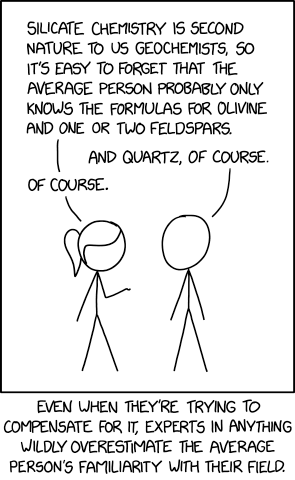So, Alec over the Technology Connections channel made an hour long video explaining the difference with kW and kWh (obviously with other stuff around it).
I’m living in northern Europe in an old house, with pretty much only electric appliances for everything. We do have a wood stove and oven, but absolute majority of our energy consumption is electricity. Roughly 24 000 kWh per year.
And, while eveything he brings up makes absolute sense, it seems like a moot point. In here absolutely everyone knows this stuff and it’s all just common knowledge. Today we went into sauna and just turned a knob to fire up the 6,5kW heaters inside the stove and doing that also triggered a contactor to disengage some of the floor heating so that the thing doesn’t overload the circuit. And the old house we live in pulls 3-4kW from the grid during the winter just to keep inside nice and warm. And that’s with heat pumps, we have a mini-split units both on the house and in the garage. And I also have 9kW pure electric construction heater around to provide excess heat in case the cheap minisiplit in garage freezes up and needs more heat to thaw the outside unit.
And kW and kWh are still commony used measurement if you don’t use electricity. Diesel or propane heaters have labels on them on how many watts they can output right next to the fuel consumption per hour and so on. So I’m just wondering if this is really any new information for anyone.
I assume here’s a lot of people from the US and other countries with gas grid (which we don’t really have around here), is it really so that your Joe Average can’t tell the difference between 1kWh of heat produced by gas compared to electricity? I get that pricing for different power sources may differ, but it’s still watt-hours coming out of the grid. Optimizing their usage may obviously be worth the effort, but it’s got nothing to do with power consumption.
So, please help me understand the situation a bit more in depth.
People complaining about this video have clearly not watched much Technology Connections; I enjoyed it immensely. It’s right in line with how Alec normally does his videos. We who are loyal to the Great Alec expect the pedantic content.
In here absolutely everyone knows this stuff and it’s all just common knowledge.

Also check out his other video on his Connextras channel where he basically suggests dismantling capitalism.
So I’m just wondering if this is really any new information for anyone.
It’s never wise to underestimate most people’s ignorance.
kW/kWh aren’t commonly used outside of electrical applications in the US, so people are less readily able to quantify and compare in other contexts. Looking at a variety of natural gas companies’ bills, you’ll get volume multiplied by a therm factor instead of simply using kWh; horsepower for not just cars but even electrical motors and pumps.
I think the average person will have looked at their electricity bill and put the basics together about watts and watt hours. As for comparison with natural gas, I think he didn’t touch on the real metric people then turn to- cost. Depending on the state it can be much cheaper to use gas vs electricity.
Yeah, electric motors are what I notice the most. Be it on washers/dryers, garbage disposals (which range from 1/3, 1/2, 3/4, 1HP) and more.
After watching the video it was a bit over explained. I think he got his point across in the first 10 minutes, though I am an engineer by trade.
I appreciate his rigour in explaining and it is a good refresher on the power/energy calculations.
is it really so that your Joe Average can’t tell the difference between 1kWh of heat produced by gas compared to electricity?
Most people don’t even know what a watt or watt/hour is. And have no idea how energy from gas relates to energy from electricity.
watt/hour
Oh yeah I’ve seen that used before, makes me cringe every time.
Anyway, do must people not go to high school? Or is stuff like that not part of the physics curriculum in some places?
Even if it was covered in high school, I think because most people never use it again in daily life it’s easy to forget.
There’s no way even 1% of people understand this in the world. Maybe 1% know of those measurements “existence” asking them what they are would get an “uhh”
In the world? Me and millions of other people got this info in middle school physics. Sure, maybe we mostly forgot the details by now. But it’s not arcane or ancient knowledge lost to time. It’s in your electricity bill every month. A quick visit to Wikipedia and I got the gist of it back. Every single physicist, engineer, and electrician got this explained again to them.
“a quick visit to wikipedia” is a good example confirming what I said, majority of people are not willing to do that to learn any subject. 0.483% of humans are engineers, of that I’d say there are a small chunk that are near worthless and probably don’t even know these basics.
Follow-up video idea: speed ≠ distance
Yeah, what the hell is this video subject. I honestly thought this stuff was common sense.
Should be but search for “kwh per hour” and there’s plenty of people who seem confused by it all.
In here absolutely everyone knows this stuff and it’s all just common knowledge.
Absolutely not. Not even close.
If you think the average person understands watts, you live in a bubble, straight and simple. You have a very skewed notion of the average person.
Yep that video is leagues beyond most peoples capabilities to understand. Thinking they already knew and understood it is crazy.
lot of people from the US with gas grid (which we don’t really have around here), is it really so that your Joe Average can’t tell the difference between 1kWh of heat produced by gas compared to electricity
Right, because for most people gas is metered and sold by the CCF, and not converted into kW at any point in the chain.
So I know i used 30ccf last month, but there’s zero indication what that is in kW, because we usually don’t convert between the meter (which is volumetric) and the billing, which could be anything but why bother?
Also from Europe, gas is measured/billed in kWh here as well.
Not everywhere, in Lithuania they charge per m³.
Reticulated gas is charged by the kWh here in New Zealand. The meter may well be calibrated in m³ (I don’t have gas at home, so I don’t know for sure) but all pricing is energy, not volume.
For bonus points, if instead you buy your gas in cylinders - a pair of 45kg (~100lb) cylinders is a common installation for houses without piped gas - those are sold simply by the unit. The best conversion for that I can find is one energy retailer describing one 45kg cylinder as 2200MJ (611kWh).
I expect this is one of those things that is overall horribly inconsistent depending on where you live.
I sometimes make a conscious effort to understand electricity. For a few days, I then think I understand what’s going on and then promptly I forget.
(Yes, I shall watch this video.)
New Technology connections video drops:

I’m going to go buy a kill-a-watt.
I moved into a tiny home and got one for measuring the current draw of my kitchen appliances and keeping track of the cost of my electric space heater ($40/month so far, yeesh)
I’m over here heating water in a kettle because of Technology Connections (and also pre-heating my dishwasher)
Its the midwest pragmatism that sells it.
I just do what he says because it sounds so practical.
Do it, it teaches you things.
Most of your power isn’t going where you think.
Oh I love this stuff.
My dishwasher pulls over 1000W, but overall actual usage pales in comparison to my server cluster, which utilizes a multiple 35W mini PCs.
I started measuring a bunch of things in February (using zigbee-compatible smart plugs to HA), so here is a graph of the above for the entire month of March:

It was eye opening, to say the least.
haven’t seen it so far, but technology connections will always get an upvote.
also consider subscribing to his channel, his videos are amazing.











